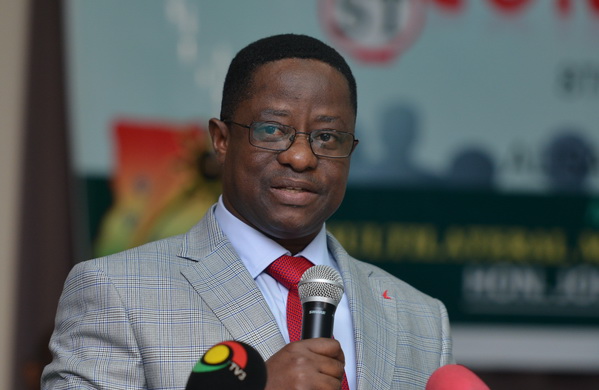
Power supply stabilised – Energy Minister assures
The Minister of Energy, Mr John-Peter Amewu, has stated that all the obstacles that impeded regular power supply in the past one week have been resolved.
That, he said, had resulted in stable power supply now, for which reason there was no cause for alarm.
To consolidate the stability in power supply, he said, the government would sign a gas transport agreement (GTA) with the West African Gas Pipeline Company Limited (WAPCo) on November 30, this year to enhance the flow of gas from Takoradi to Tema.
Mr Amewu gave the assurance after a crunch meeting with power producers and distributors on the way forward to deal with the power situation following days of erratic power supply in some parts of the country, especially Accra, a situation which generated public outcry.
The crucial meeting was attended by the CEOs and other officials of the Volta River Authority (VRA), the Ghana Gas Company Limited (Ghana Gas), the Ghana Grid Company Limited (GridCo) and the Electricity Company of Ghana (ECG).
After the meeting, which was held behind closed doors, a joint press briefing was held, at which Mr Amewu explained that the power outages were the result of a combination of factors, including challenges with fuel supply, reverse flow of gas from Takoradi to Tema and the delay in the supply of gas from Nigeria.
No dumsor
He stressed that although there had been a myriad of challenges in the power sector, leading to some power outages, the issues had been resolved.
“As of Sunday, November 25, there was no shortage, as available generation was 2,611MW, against peak demand at 2,330MW.
“In addition, Nigeria Gas started flowing yesterday at 30mmscfd, which will ramp up in the next few days, so the system is stabilised now.
“I want to state categorically that everything is under control and the country is nowhere near the dumsor that was experienced some years back,” he said.
Reverse flow
He gave an assurance that most of the challenges had been addressed, leading to the stabilisation of the power situation in the country.
“Our major challenge has been the incomplete reverse flow project to flow gas from the West (Takoradi) to the East (Tema). We had to fast-track it through a bypass which has been completed but not connected to the West Africa Gas Pipeline (WAGP) yet because the WAGP has not come out with the tariff for the reverse flow and the West Africa Gas Pipeline Company Limited (WAPCo) will not sign the Gas Transportation Agreement (GTA) without a tariff.
“WAPCo wanted to charge $3.2 per million British thermal unit (MMBtu), while the government wanted to pay $1 per MMBtu, so there was disagreement and the agreement could not be signed.
“We have, however, agreed on $1.7 per MMBtu. On Friday, November 2018, the West Africa Gas Pipeline Authority (WAGPA), the regulator issued the final tariff notice of $1.7 per MMBtu. This will now be approved by the committee of ministers of WAGP on November 30, this year to pave the way for the signing of the GTA to allow for the connection to the bypass,” he said.
Fuel supply
Touching on the other issues that accounted for the power outages, Mr Amewu said there were challenges with the supply of fuel for the generation of power in Tema because gas stopped flowing from Nigeria on November 22, this year.
He added that the lack of flow of gas from Nigeria was due to technical hitches in Nigeria that affected the vessel which delivered fuel to Karpower.
“A combination of the delayed supply of fuel for Karpower and the unavailability of gas from Nigeria meant that about 800 megawatts (MW) of available generation was compromised, including 450MW of Karpower and about 400MW of Asogli,” he said.
Mr Amewu, however, said the challenge was resolved the following day but it took another two days for the vessel to deliver to Karpower, discharge into the powership and eventually ramp up to 420MW on Sunday (November 25).
